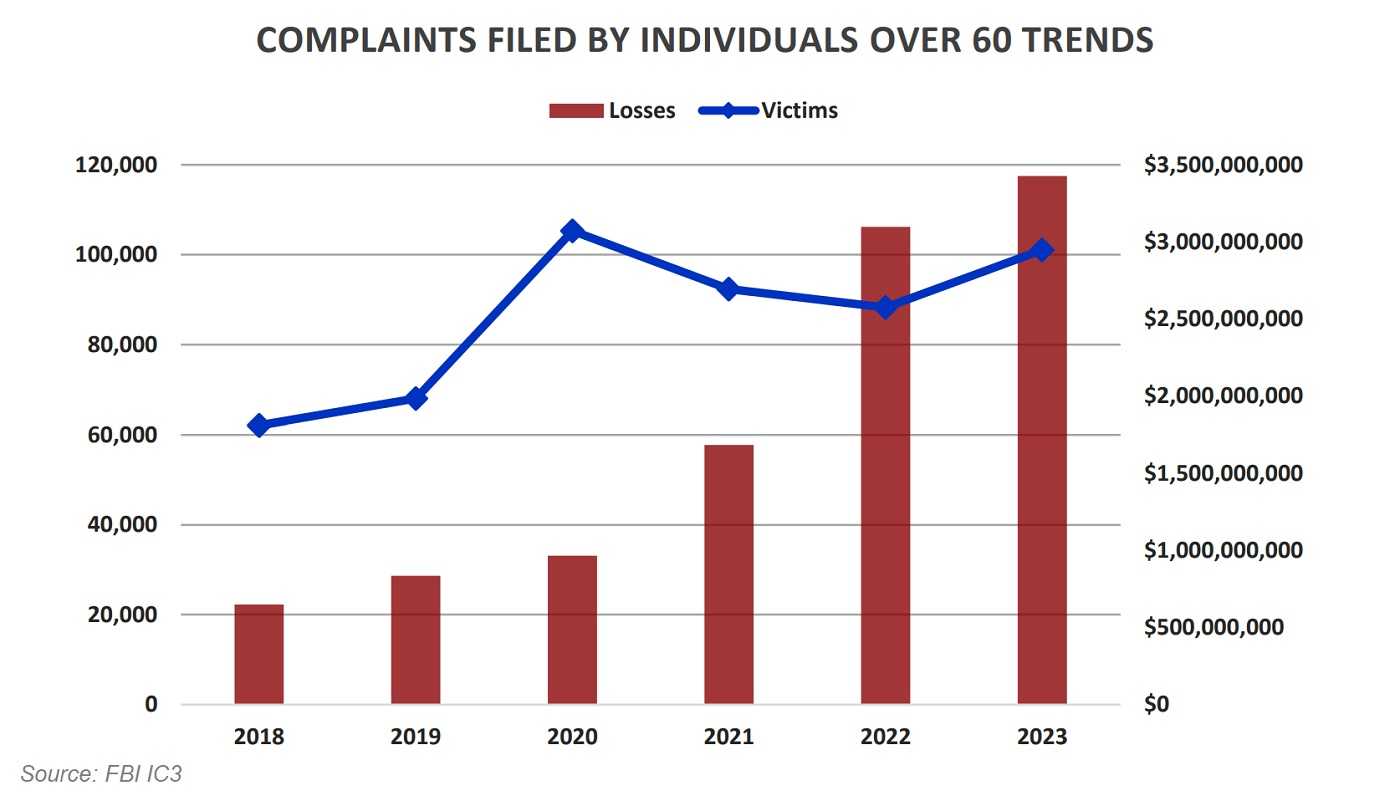Senior Scams—When Elder Fraud Gets Personal
June 22, 2025
Whether family, friend or neighbor, many of us know a senior citizen. But one thing many of us don’t know is how vulnerable they are to cybercrime. The FBI reports those aged 60+ are potential victims of a nearly $3.5 billion criminal scheme to defraud this at-risk group, and it’s only getting worse.
Why Seniors Get Targeted
Last year in the U.S., nearly two-thirds of scam victims were seniors. Tech support, romance, cryptocurrency, and government impersonation are just a few vulnerabilities of the 60+ crowd. The reasons behind the attacks are simple: Many seniors have a financial nest egg, and they tend to trust others more.

Senior scams are up over 11% since last year, and the FBI notes scammers are adjusting their tactics. One slice of the 60+ pie grew up without technology, and Baby Boomers have technology in their lives. As a result, scammers are using the telephone and mailings for the first group, and email phishing and texting for the other.
Senior Safety
- Don’t be pressured or scared into acting. Legitimate organizations never use pressure tactics.
- Should a family member or friend contact you asking for money or other help, pick up the phone and use their legitimate number to contact them directly.
- If you don’t recognize a phone number, text or email sender, don’t respond.
- Never follow links or open attachments in texts and emails, especially from unknown senders. Malicious links go to scammer-controlled websites and attachments are full of malware.
- Always report a scam to law enforcement. These crimes happen often and to everyone, so no need to feel embarrassed.
Exercising these safety tips along with a good dose of common sense helps prevent scams targeting seniors. Use them yourself and share them with a senior in your lives.